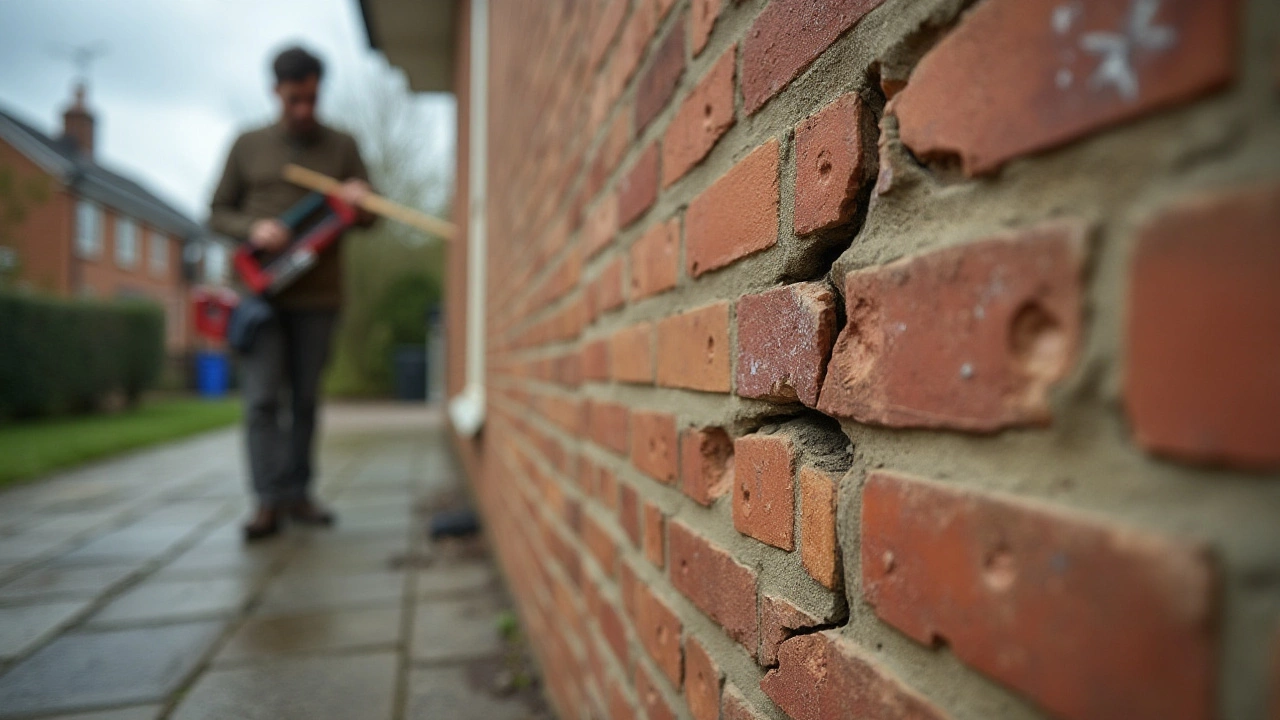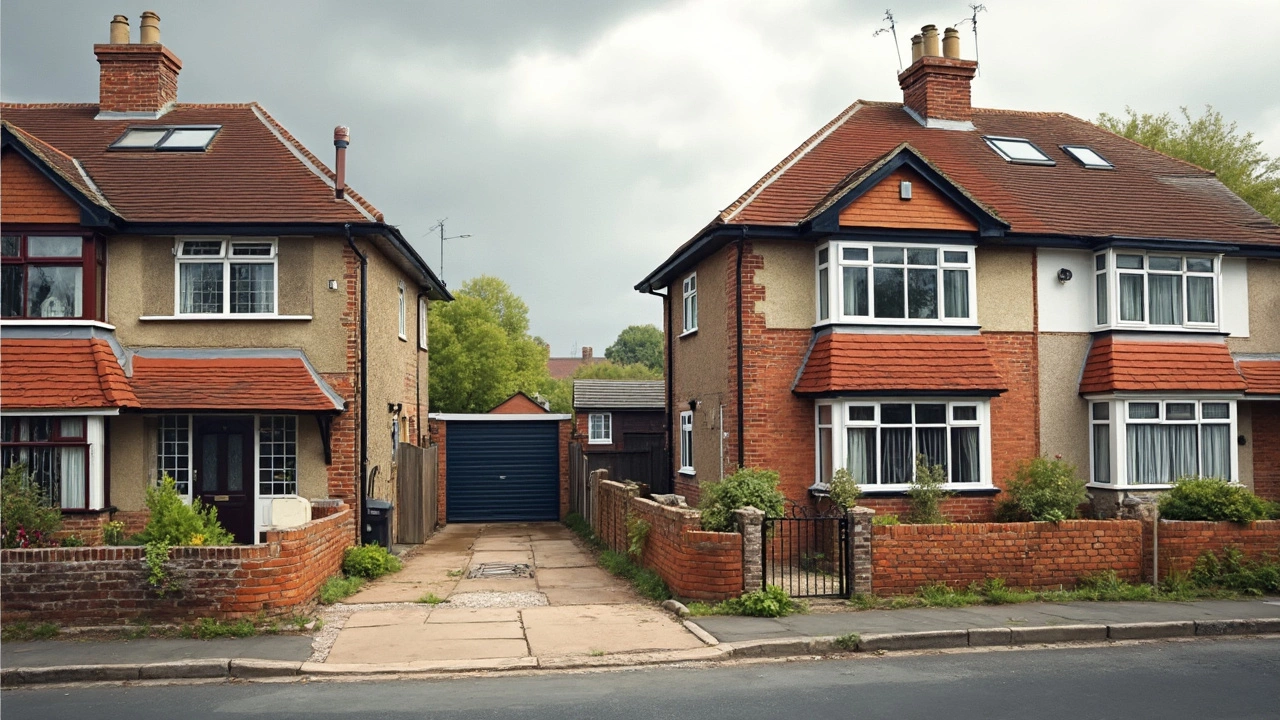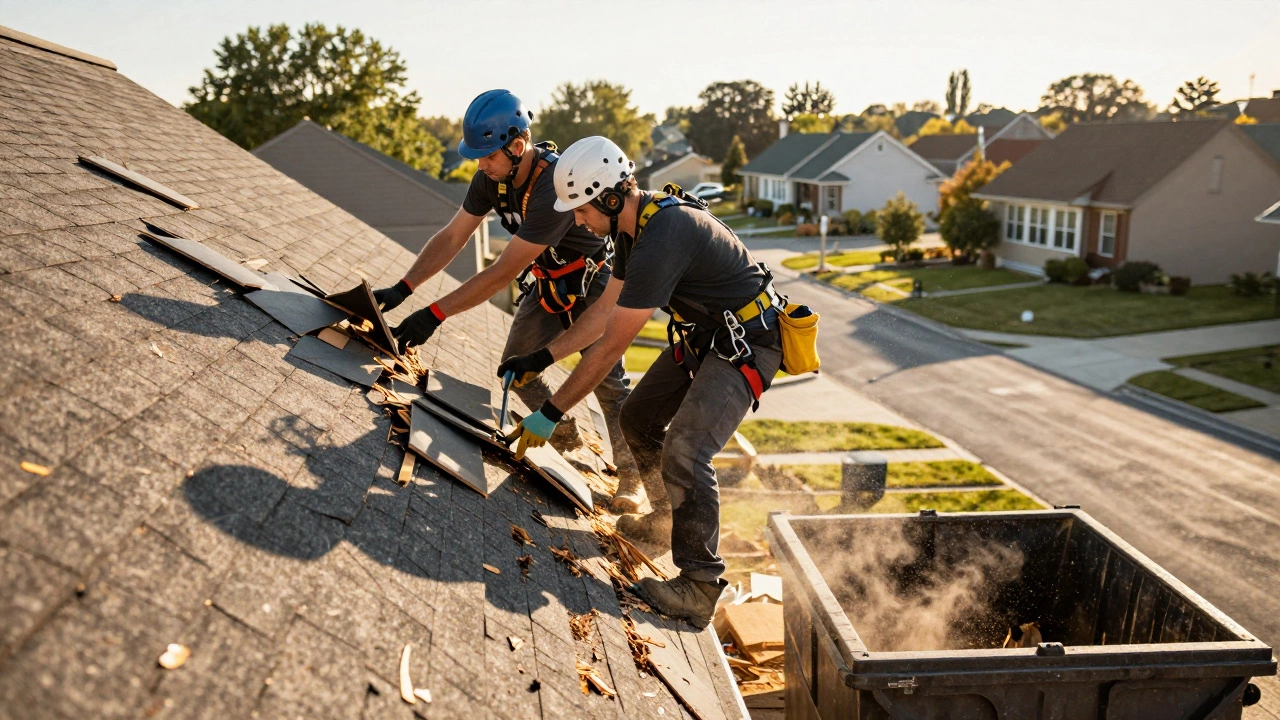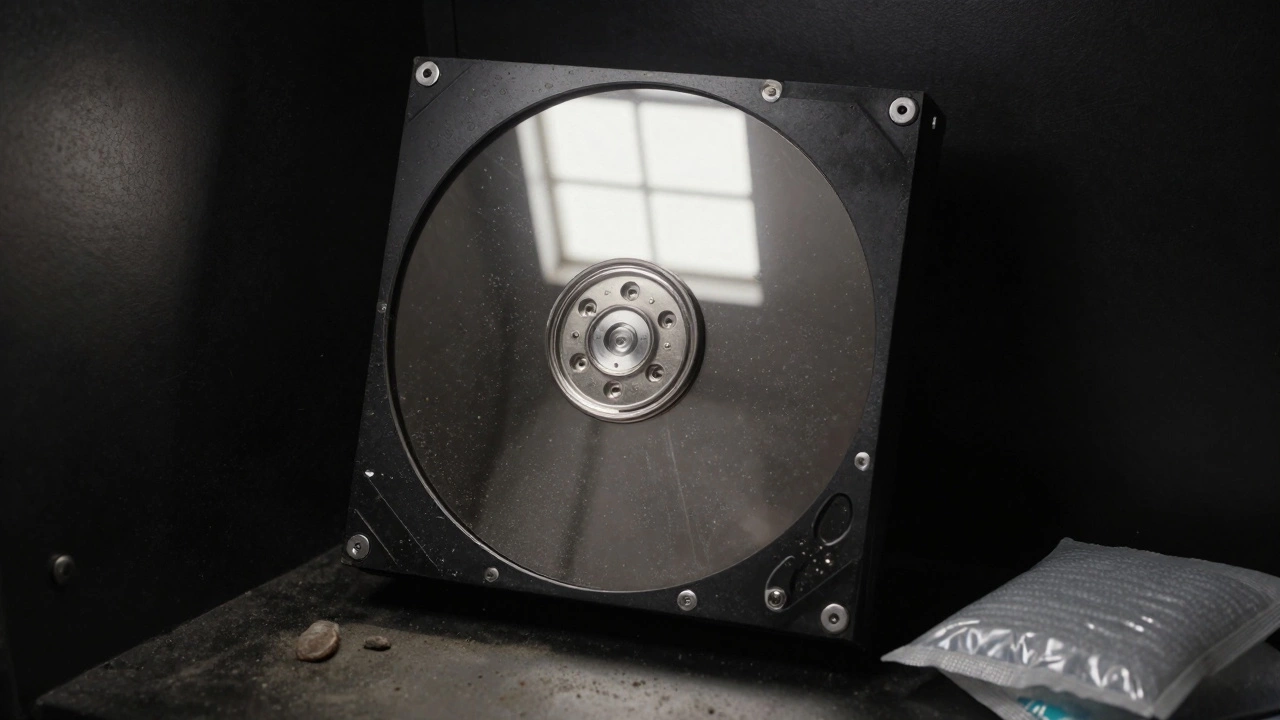Foundation issues in a house can be like that weird noise in your car that starts small but grows into a symphony if you ignore it too long. But how do you know when it's time to stop sinking money into repairs and just walk away? It's not like there's a one-size-fits-all answer, but let's dive into some common signs and when you might want to consider putting down the toolbox for good.
First off, if you notice cracks in walls or uneven floors, your house might be hinting at foundation troubles. It’s like its way of throwing a tantrum. Not all cracks mean the sky is falling, but some definitely raise red flags. If those cracks keep growing or seem to show up overnight, it's time to pay attention.
Then there's the big question: how much is this going to cost? Foundation repairs can drain your savings faster than a weekend getaway if you're not careful. Sometimes, the cost of fixing everything can surpass the house's value, and that's when it's worth considering if the investment is wise. Fixing a foundation isn't just about money – it's about the future livability of the home.
- Signs Your Foundation Might Be Messed Up
- Cost vs. Benefit: Is It Worth Fixing?
- When Professional Intervention is a Must
- The Emotional Toll: When to Let Go
- Alternatives to Walking Away
Signs Your Foundation Might Be Messed Up
So, you've started to notice some weird things happening around your place, and you're not sure if it's time to freak out or not. Foundation problems can sneak up on you, disguised as everyday home issues. But before you panic, let's look at some common signs that your house foundation issues might be more than just a minor inconvenience.
The first and most obvious sign? Cracks. If there are cracks in your walls, especially if they're wider than a quarter-inch, that's a red flag. Cracks in brick exteriors or around windows and doors are like a neon sign saying your foundation problems need attention. Not every crack is a deal-breaker, but if they keep spreading or new ones keep appearing, something's up.
Another sneaky sign is doors and windows acting up. Ever notice your door won't latch or your windows are suddenly hard to open? That’s not just annoying; it's often because your foundation is shifting. Houses do settle a bit over time, but if you've got to use the old shoulder shove to open a door, there’s more going on.
And then there's the funhouse floor effect. If you can roll marbles across your house and they seem to throw parties on your uneven floors, that's a pretty solid indicator. Floors that slope or feel bouncy can mean your foundation isn't as firm as it should be.
Knowing these signs can save you from big headaches down the road. It’s like catching a cold before it turns into the flu, but for your house. So, keep an eye out and don’t wait until you're knee-deep in repair quotes to act.
| Sign | Description |
|---|---|
| Wall Cracks | Cracks wider than a quarter-inch are concerning. |
| Sticking Doors/Windows | Hard to open or close due to shifting foundation. |
| Uneven Floors | Sloping or bouncing floors indicate instability. |
Cost vs. Benefit: Is It Worth Fixing?
Foundation repairs are usually expensive. Knowing when to pull the plug is key to keeping your sanity and finances intact. Let's get into the dollars and cents of it all, shall we?
Start by assessing the damage. Are we talking about minor cracks or major structural disasters? A small crack might set you back a few hundred dollars to patch up. On the other hand, extensive repairs involving piers or underpinning might run anywhere from $5,000 to $25,000 or more. For something like underpinning, you're looking at $1,000 per pier, which can add up quickly.
So, when do you decide to fix rather than bail? Consider how long you plan to stay in the house. If it's your forever home, investing in foundational fixes might pay off in peace of mind and resale value. But if you'll be moving anytime soon, the price tag might outweigh the benefits.
It's not just about dollar signs; there's your home’s market value to think about. Will repairing increase your home's value enough to justify the cost? A local real estate expert or a proper market evaluation can help.
Another factor? Location. In some places, foundation problems are common due to soil conditions. If you're in an area like Texas, where soils expand and contract a lot, then repairs might just be part of owning a home. However, if you're fixing a foundation without living on a shaky ground like that, maybe reconsider.
Ultimately, weigh your financial options. Loans for repairs, potential insurance help, and home's value post-repair should all play a role. Have an honest chat with a trusted contractor who specializes in foundation repair—they’re often the best source for understanding what you're really signing up for.
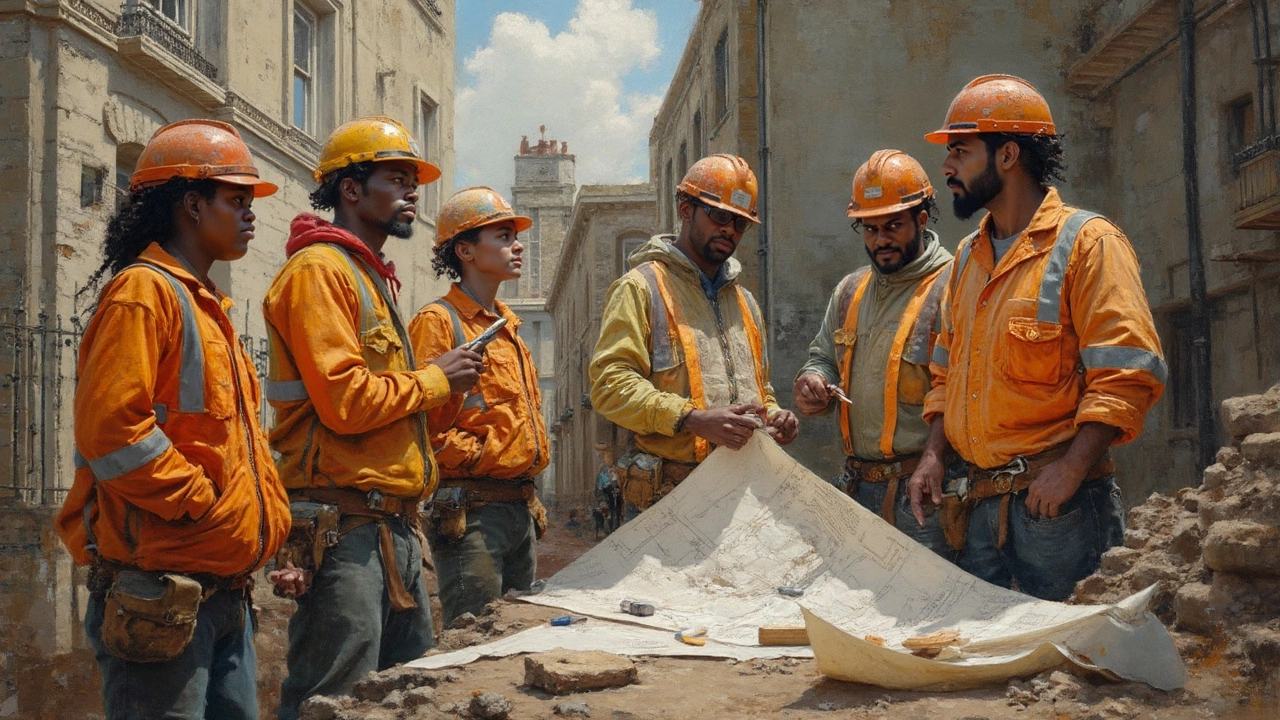
When Professional Intervention is a Must
Alright, so you've spotted some concerning signs in your home’s foundation. Now, when is it time to call in the cavalry? Sometimes, the problems are just too big or risky to handle on your own. Professional help isn't just a last resort—it's sometimes the best initial step you can take.
The first red flag you'd want to look out for is rapidly widening cracks. We're talking about gaps that you can fit a pencil into or larger. These aren't just cosmetic issues. Structural engineers are trained to assess the severity of such cracks. As foundation cracks can compromise the integrity of a building, professional advice is invaluable.
Another situation calling for professional help is water pooling around your foundation. This isn't just about muddy shoes or soggy gardens. Persistent water can lead to soil erosion, which might cause the house to settle unevenly. A professional can diagnose whether you need foundation repair or a simple drainage adjustment. As David Leigh, a well-regarded structural engineer, puts it,
"Ignoring water drainage issues is like playing Jenga with your home. You're pulling blocks from the base and hoping it doesn't come crashing down."
Also, significant movement in walls or floors warrants immediate attention. Shifts in your home's structure usually require more than a DIY approach. Foundation professionals have access to sophisticated tools that accurately measure movement and identify weak spots. They offer diagnostic insight you just can’t get with a basic toolkit.
Diving into costs a bit, here’s a small table showing common repair costs to give you a ballpark idea:
| Foundation Issue | Average Repair Cost |
|---|---|
| Foundation Crack | $500 - $2,500 |
| Water Damage | $2,500 - $7,000 |
| Major Foundation Repair | $5,000 - $15,000 |
Calling in professionals early on can even save money in the long run by avoiding extensive repairs needed from prolonged damage. And if you're ever in doubt, remember it's always better to be safe than sorry, especially when your home might be at risk.
The Emotional Toll: When to Let Go
Walking away from foundation problems isn't just a financial decision. It can put you through the emotional wringer. Imagine pouring your savings, time, and energy into your dream home only to face an unsteady rock—literally. It can feel like your house isn’t the safe, secure haven you imagined.
One factor that makes the decision tougher is the attachment to memories. Maybe this is where your kids took their first steps or where you held epic family get-togethers. It’s more than just concrete and wood; it’s your life. However, hanging onto a home with serious foundation issues might not only stress your wallet, but also your well-being.
When repairs start piling up, they don't just drain financial resources—they drain emotional ones too. The constant noise, workers in and out, and the sheer uncertainty of it all can overwhelm you. It's not just about seeing cracks in walls; it's the fear of what comes next. Will more issues crop up even after repairs?
It’s crucial to balance the head and the heart. Sometimes, letting go of a house with a troubled foundation can open up opportunities for a fresh start elsewhere, free from stress and constant repairs. Perhaps it’s about recognizing that a house is just a structure, while a home is built on peace, happiness, and safety.
Whenever you're standing at this tough crossroads, take stock of your emotions. It’s okay to grieve the loss of the space while also looking forward to new beginnings. Consult with professionals who understand both the structural and the human side of things. And remember, while foundations of houses may falter, the foundation of your happiness doesn't have to.

Alternatives to Walking Away
So, you're standing there looking at those foundation problems thinking, "Is it goodbye forever or can we pull through?" Luckily, there are a few paths you can take before totally cutting ties with your current digs. Let's go through some options that might keep you and your house together.
First, consider light repairs. If the damage isn't extensive, some minor fixes might just do the trick. Small cracks or slight misalignments can often be patched up without calling in the cavalry. Keep in mind, though, these solutions are more like a Band-Aid rather than open-heart surgery.
Next up, you might want to think about refinancing. Yep, tapping into your home’s equity or considering a home improvement loan can provide the funds you need for serious repairs. Compare this against the stress and cost of moving, and it can be a no-brainer.
If things are looking a bit grimmer, don't panic just yet. Contacting a foundation repair specialist to conduct an in-depth assessment can provide clarity and peace of mind. Often, they offer solutions you might not have considered, like piering or slabjacking. These methods can stabilize your structure without the total overhaul.
And hey, if you’re comfortable with some DIY stuff, there are plenty of materials and guides out there to tackle smaller jobs. From patching cracks yourself to reinforcing minor weaknesses, a little elbow grease could save significant bucks.
For those who’d rather hand over the reins, selling ‘as-is’ can be a relief. Some buyers are ready to take on foundation challenges, particularly if the location or lot is enticing. It doesn't have to be the end of the road; sometimes, it's just a different journey.
Here's a quick breakdown of potential solutions and their expected costs:
| Solution | Average Cost |
|---|---|
| Minor Crack Repair | $500 - $2,500 |
| Piering | $1,000 - $3,000 per pier |
| Slabjacking | $3,000 - $7,500 |
| Engineered Repair | $10,000 - $30,000 |
Weigh each option carefully. Each alternative requires a bit of homework and a dose of realism. The key is knowing when to fix, when to finance, and when to fold. Your home should be a place of comfort, not constant worry.


